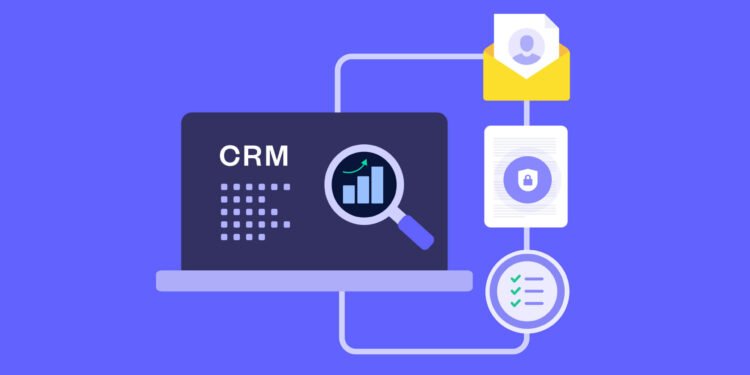Imagine a CRM system so well-suited to your business that it feels like it was custom-built for your needs.
That’s the promise of an industry-specific CRM, designed to simplify workflows, improve efficiency, and enhance customer relationships with tools tailored for your industry.
Key Takeaway: An industry-specific CRM delivers features and workflows aligned with your unique business needs, helping you streamline operations, deliver personalized customer experiences, and drive growth.
1. Why Industry-Specific Features Matter
Generic CRMs often fall short when it comes to meeting specialized business needs. Industry-specific CRMs, on the other hand, are designed to handle the nuances of your field.
- Healthcare: Manage patient scheduling, billing, and HIPAA compliance seamlessly.
- Real Estate: Track client preferences, manage property listings, and schedule showings with ease.
- Manufacturing: Streamline inventory management, supplier tracking, and order processing.
Example: For a manufacturing business, a tailored CRM helped centralize supplier and inventory data, cutting hours off weekly processes.
2. Build Better Customer Experiences
Customers expect personalized interactions, and an industry-specific CRM gives you the tools to deliver just that.
- Personalized Communication: Tailor messages, offers, and updates to match customer needs.
- Faster Support: Solve problems more efficiently with tools optimized for your field.
- Deeper Insights: Use targeted analytics to anticipate customer needs and preferences.
Example: A tailored CRM for retail improved customer satisfaction by enabling personalized recommendations based on purchase history.
3. Save Time with Streamlined Workflows
Pre-built workflows in industry-specific CRMs reflect how your business operates, saving you time and effort.
- Templates for Tasks: Access ready-made workflows for sales, support, or onboarding.
- Time Savings: Skip creating processes from scratch by customizing pre-built options.
- Team Alignment: Keep everyone on the same page with consistent, industry-specific workflows.
Example: A real estate CRM with pre-built pipelines for property sales reduced administrative overhead by 20%.
4. Gain Relevant Insights
Generic reports can be overwhelming. Industry-specific CRMs provide focused analytics that matter to your business.
- Custom Reports: Track KPIs like lead conversion rates, patient satisfaction, or customer retention.
- Benchmarking: Compare your performance against industry standards.
- Predictive Analytics: Spot trends and anticipate future needs.
Example: A healthcare CRM’s patient satisfaction reports helped improve service delivery by identifying key pain points.
5. Simplify Compliance with Built-In Tools
Industries with strict regulations benefit greatly from CRMs designed to manage compliance.
- Compliance Tracking: Meet requirements for laws like GDPR, HIPAA, or PCI DSS.
- Data Security: Protect sensitive information with robust encryption and access controls.
- Audit Trails: Maintain detailed records for easy reporting and accountability.
Example: A healthcare provider’s CRM ensured HIPAA compliance by automating data protection protocols and generating audit-ready records.
6. Faster Adoption and Better Results
With familiar workflows and tailored onboarding, industry-specific CRMs make adoption easier for teams.
- Pre-Built Training: Use industry-focused training materials for faster onboarding.
- Relevant Processes: Employees instantly recognize and understand terms and workflows.
- Higher Engagement: Tools that make sense encourage regular use and better results.
Example: A tailored CRM for a retail business led to near-instant adoption, with employees embracing the system after the first training session.
Why Choose an Industry-Specific CRM?
Switching to an industry-specific CRM isn’t just a practical decision, it’s an investment in efficiency and growth.
- Save Time: Eliminate manual work with streamlined workflows.
- Enhance Customer Relationships: Deliver personalized interactions that build loyalty.
- Simplify Operations: Leverage tools designed for your industry to stay competitive.
Example: A real estate team saw faster deal closures and improved client satisfaction after adopting an industry-specific CRM tailored to their needs.
Wrapping It Up
An industry-specific CRM can revolutionize how your business operates by aligning tools, workflows, and features with your unique needs. From saving time and improving customer experiences to simplifying compliance and driving smarter decisions, a tailored CRM delivers where it matters most. Ready to see how an industry-specific CRM can transform your business? Start exploring your options today!








